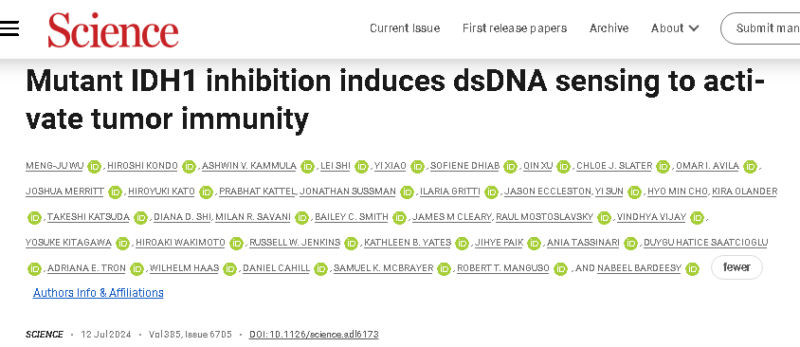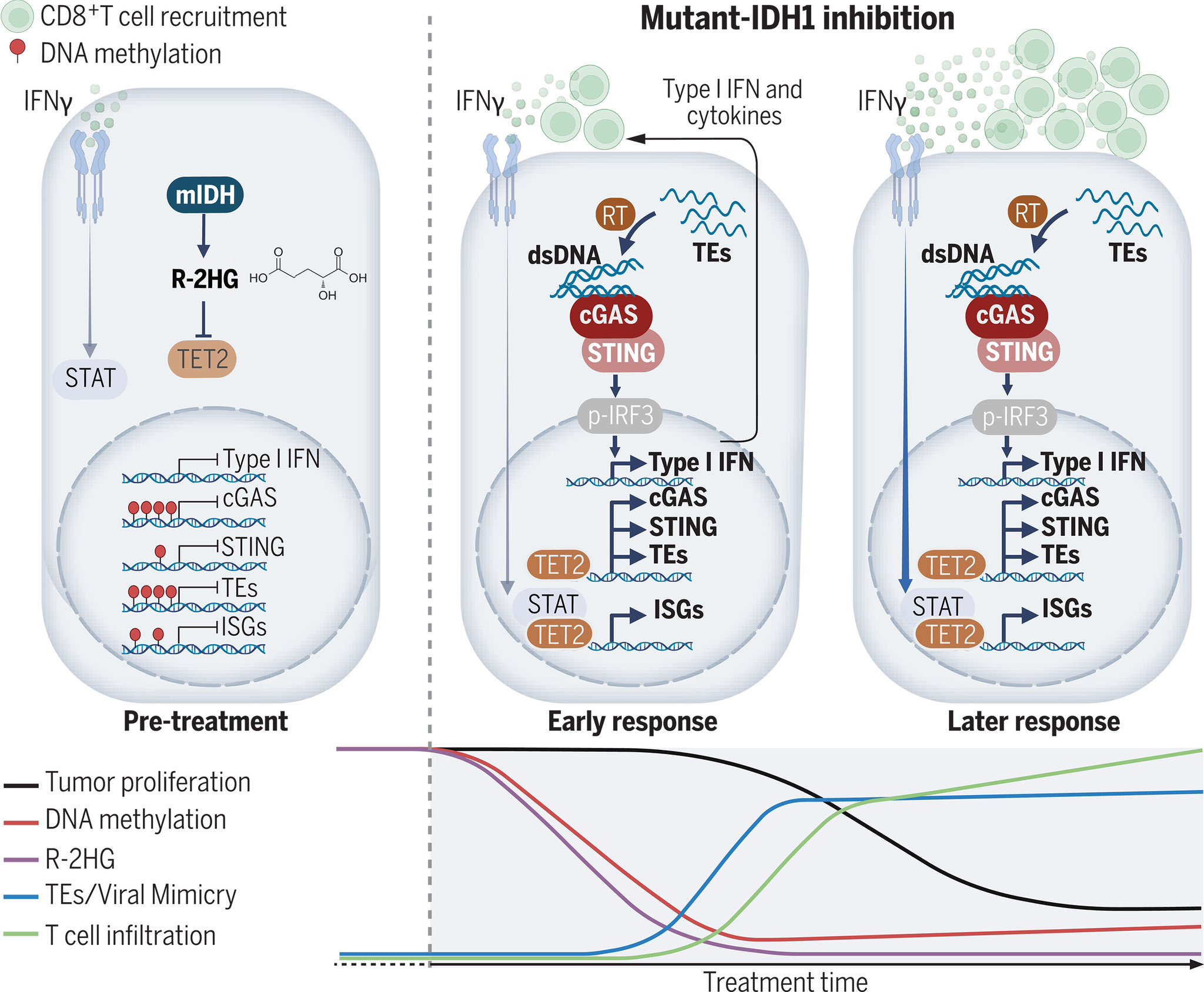Anirban Maitra shared a post on X about a recent paper by Nabeel Bardeesy et al. titled “Mutant IDH1 inhibition induces dsDNA sensing to activate tumor immunity” published in Science Magazine. .
Authors: Meng-Ju Wu, Hiroshi Kondo, Ashwin V. Kammula, Lei Shi, Yi Xiao, Sofiene Dhiab, Qin Xu, Chloe J. Slater, Omar I. Avila, Joshua Merritt, Hiroyuki Kato, Prabhat Kattel, Jonathan Sussman, Ilaria Gritti, Jason Eccleston, Yi Sun, Hyo Min Cho, Kira Olander, Takeshi Katsuda, Diana D. Shi, Milan R. Savani, Bailey C. Smith, James M. Cleary, Raul Mostoslavsky, Vindhya Vijay, Yosuke Kitagawa, Hiroaki Wakimoto, Russell W. Jenkins, Kathleen B. Yates, Jihye Paik, Ania Tassinari, Duygu Hatice Saatcioglu, Adriana E. Tron, Wilhelm Haas, Daniel Cahill, Samuel K. McBrayer, Robert T. Manguso, Nabeel Bardeesy.

Anirban Maitra commented on X sharing this paper:
“Another spectacular study from Nabeel Bardeesy at Mass General Cancer Center in Science Magazine.
Mutant IDH1 inhibition induces dsDNA sensing to activate tumor immunity.
This study uncovers the mechanism through which inhibition of mutant IDH1 (present in Cholangiocarcinoma) converts a cold immune microenvironment to a CD8 T cell rich milieu. While this observation was previously published by Nabeel.
The mechanism remained unknown till now. As it turns out, in IDH1 mutant cancers, TET2 silencing via 2HG (an oncometabolite) leads to hypermethylation of cGAS, and thus, dampening of innate immune sensing.
IDH1 inhibition leads to TET2 reactivation, which activates both selected classes of transposable elements (TEs) and cGAS, leading to a ‘viral mimicry’ Type 1 IFN response via cGAS-STING-IRF3.
A perspective on this article by Jason Pitarresi and Katherine Fitzgerald.”
Source: Anirban Maitra/X
Dr. Anriban Maitra serves as Professor of Pathology and Translational Molecular Pathology at UT MD Anderson Cancer Center since August 2013, and directs the Sheikh Ahmed Pancreatic Cancer Research Center.
He leads an NCI-funded laboratory dedicated to pancreatic cancer research, focusing on genetics and molecular pathology in human and mouse models. His research aims to advance early detection and interception strategies to enhance patient survival rates in pancreatic cancer.



